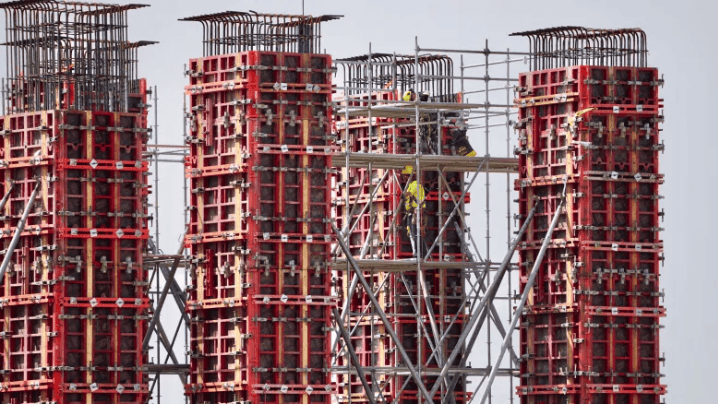
‘Investment levels will sink to even more depressed levels as the energy sector struggles’
Alberta could fall back into recession this year, albeit a modest recession, according to a new report by the Conference Board of Canada.
The ongoing woes of the oilpatch and China’s move to block imports of Canadian canola and other agricultural products are two of the reasons the province’s economy could shrink this year.
In February, the Conference Board was expecting Alberta’s economy to grow by 1.3 per cent this year, however, its latest report now expects the economy to shrink by 0.1 per cent.
The report specifically points to the Alberta government decision to restrict oil production as one of the main culprits. The move helped boost profits for the energy sector, but it also meant less drilling activity and less spending by companies.
“Investment levels will sink to even more depressed levels as the energy sector struggles. Drilling investment will take a major tumble, as producers have either delayed spending until times are more certain or they have shifted their capital to south of the border,” according to the report.
“The effect on investment has been severe, and the Alberta economy is set to contract by 0.1 per cent in 2019 — a mild recession, but a recession nonetheless.”
Several multi-billion-dollar construction projects are underway, including a pair of petrochemical plants, but the province still needs more pipeline capacity to export oil and gas out of Alberta.
“The big issue for Alberta is it’s not just the oil price, it really is the investment piece,” said Pedro Antunes, the chief economist with the Conference Board of Canada.
“When we looked at the investment intentions of the oilpatch, what we saw was essentially drilling activity come off very, very strongly this year. We’re not seeing new construction in terms of [oilsands] mines or mine development. We’ve seen a number of projects held up or delayed,” he said.
Antunes said employment levels should remain stable or grow slightly this year.
The Conference Board of Canada expects Alberta to bounce back in 2020 with growth of 2.7 per cent as new construction projects begin and the oil production cuts are expected to be lifted.

Alberta Finance Minister Travis Toews said the conference board’s report “emboldens” the government to press forward with key policy planks, including corporate tax cuts and repealing the carbon tax.
“There’s no doubt there are significant challenges ahead for Albertans,” Toews told reporters in Edmonton.
“We are confident that … our strategy of creating the most competitive business environment will attract significant investment back to this province. And we’re also committed to balancing the budget in the first term.”
Earlier this month, economists with ATB Financial said the province will face a challenging year, cutting their growth forecast in half from where it was in March.
But the Alberta-based bank does not expect the province to slip into recession.
ATB is forecasting real GDP growth of 0.7 per cent in 2019, improving to 1.6 per cent in 2020.
“Despite all the headwinds hampering Alberta’s economic progress, it looks like we will avoid slipping back into recession,” said ATB’s chief economist Todd Hirsch in a statement.

Still, Hirsch said economic activity will feel slow in the province, including limited job growth and weak growth in retail sales.
Among the positives ATB identified are a strong start to the year for manufacturing sales and “encouraging” performance in the agriculture and agrifood sector.
Premier Jason Kenney wants to boost the province’s economic fortunes through a string of changes such as eliminating the carbon tax on residents, cutting corporate taxes, and reducing the minimum wage for youth.
Earlier this month, the Petroleum Services Association of Canada lowered its 2019 drilling forecast for the second time.
It now anticipates 5,300 oil and gas wells will be drilled in Canada, down from a revised estimate of 5,600 wells in January and a 20 per cent drop from its original 6,600 forecast in November 2018.


